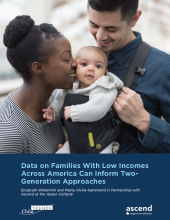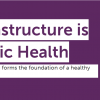0
Report
Community:
May 17, 2023
Researchers at UC Berkeley’s Youth and Allies Against Homelessness, or YAAH, conducted a study to better understand how the COVID-19 pandemic disproportionately affected unhoused youth and their ability to transition out of homelessness and into adulthood. YAAH released a report Wednesday to suggest how to better support this community in the future.
Authored by: UC Berkeley's Youth Allies Against Homelessness for The Daily Californian
Topics: Broadband, COVID-19, Food insecurity, Health, Homelessness, Housing, Low-income, Mental health, Racial inequalities, Youth
 Shared by Sandra Ware
Shared by Sandra Ware
Sandra Ware posted a
on May 25, 2023
UC Berkeley's Youth Allies Against Homelessness for The Daily Californian
Researchers at UC Berkeley’s Youth and Allies Against Homelessness, or YAAH, conducted a study to better understand how the COVID-19 pandemic disproportionately affected unhoused youth and their ability to transition out of homelessness and into adulthood.
0
Research
Community:
May 25, 2023
We all want to live in a community where everyone has access to safe drinking water, green parks, and a reliable transit system. Strong infrastructure is key to ensuring communities have access to these necessities.
But this is not everyone’s reality today. For decades, barriers like residential segregation have fueled a lack of investment and inadequate and failing infrastructure in places where Black, Latino, and Indigenous people live today. These inequities create barriers to good health.
Investing in infrastructure—the building blocks of our communities—can transform communities so they are healthier and more equitable places to live.
Authored by: Robert Wood Johnson Foundation
Topics: Environmental Resiliency/Climate Change, Green, Health, Racial inequalities, Research, Transportation
 Shared by Sandra Ware
Shared by Sandra Ware
Sandra Ware posted a
on May 25, 2023
Robert Wood Johnson Foundation
We all want to live in a community where everyone has access to safe drinking water, green parks, and a reliable transit system. Strong infrastructure is key to ensuring communities have access to these necessities.
But this is not everyone’s reality today.
0
Report
Community:
Mar 1, 2023

We are delighted to share a new research report in partnership with Child Trends: Data on Families with Low Incomes Across America Can Inform Two-Generation Approaches. In this new analysis, research experts Elizabeth Wildsmith and Marta Alvira-Hammond paint a detailed picture of how families in households with low incomes in the United States have changed since 2011. The report highlights 10 key findings from their analyses of family economic and social conditions related to financial security and mobility, family structure and living arrangements, education and employment, parental health, and community health indicators (for example, rates of child poverty, violent crime, child care costs). A deeper understanding of families with low-incomes will inform our collective work and strengthen how our 2Gen policy and practice recommendations can prioritize health, education, employment, and economic assets to ensure families have access to the resources they need to build intergenerational prosperity and well-being.
Authored by: Elizabeth Wildsmith and Marta Alvira-Hammond for Child Trends in partnership with Ascend at the Aspen Institute
Topics: dual-generation initiative, Early childhood, Education, Health, Housing, Legislation & Policy, Low-income, Racial inequalities
 Shared by Sandra Ware
Shared by Sandra Ware
Sandra Ware posted a
on Mar 2, 2023
Elizabeth Wildsmith and Marta Alvira-Hammond for Child Trends in partnership with Ascend at the Aspen Institute
We are delighted to share a new research report in partnership with Child Trends: Data on Families with Low Incomes Across America Can Inform Two-Generation Approaches.
0
Publication
Community:
Nov 3, 2022
In the newly released Stanford Social Innovation Review article, co-authors Jessica Mulcahy, Success Measures at NeighborWorks America; Vedette R. Gavin, Verge Impact Partners; and Stacey Barbas and Kate McLaughlin, The Kresge Foundation discuss their collaborative work on a three-year developmental evaluation to learn about the strategies and approaches grantees are using to advance health equity through housing. This article is part of the series “Collaboration for Housing Justice” sponsored by Funders for Housing and Opportunity to mark their fifth anniversary.
Authored by: Stacey Barbas, Kate McLaughlin, Jessica Mulcahy & Vedette R. Gavin, Stanford Social Innovation Review
Topics: Community development, Health, Housing, Place-based, Racial inequalities, Research
 Shared by Camille Anoll-Hunter
Shared by Camille Anoll-Hunter
Camille Anoll-Hunter posted a
on Dec 15, 2022
Stacey Barbas, Kate McLaughlin, Jessica Mulcahy & Vedette R. Gavin, Stanford Social Innovation Review
In the newly released Stanford Social Innovation Review article, co-authors Jessica Mulcahy, Success Measures at NeighborWorks America; Vedette R.
0
Communications
Community:
Oct 14, 2022
Medical debt is a critical challenge to Americans’ financial stability and well-being. People with medical debt are more likely to forgo needed medical care, have difficulty meeting basic needs, and face an increased risk of bankruptcy.
Recent Urban research shows there are great disparities in who carries the most medical debt. Adults who live in communities where the majority of the population are people of color are more likely to have medical debt in collections reported on their credit reports. In particular, Black adults are more likely to have difficulty paying for family medical expenses. These inequities reinforce the racial wealth gap and contribute to disparities in health outcomes.
Authored by: Miranda Santillo, Breno Braga, Fredric Blavin, Anuj Gangopadhyaya for The Urban Institute
Topics: Asset building, Dual-eligibles, Health, Legislation & Policy, Low-income, Medicaid / Medicare, Racial inequalities
 Shared by Sandra Ware
Shared by Sandra Ware
Sandra Ware posted a
on Oct 27, 2022
Miranda Santillo, Breno Braga, Fredric Blavin, Anuj Gangopadhyaya for The Urban Institute
Medical debt is a critical challenge to Americans’ financial stability and well-being.
0
Webinar
Community:
Dec 14, 2021
At its December 2021 meeting, CLPHA's Housing Is Working Group learned from experts in the field about how they have worked to create resident-focused and community-centered work with their PHAs and partners. We also brainstormed how best to support residents and work towards more equitable and representative housing for everyone, and left with the knowledge of how to better highlight and prioritize resident voices and leadership at every level of our work.
Authored by: Housing Is
Topics: Family engagement, Health, Healthy homes, Housing, Housing Is Working Group, Mental health, Racial inequalities, Supportive housing
 Shared by Stephanie Gray
Shared by Stephanie Gray
Stephanie Gray posted a
on Apr 18, 2022
At its December 2021 meeting, CLPHA's Housing Is Working Group learned from experts in the field about how they have worked to create resident-focused and community-centered work with their PHAs and partners.
0
Report
Community:
Apr 11, 2022
Educators play an important role in supporting students' mental well-being. The pandemic has added incredible layers of stress for both adults and young people. Although educators can't control all the stressors and sources of trauma affecting them, they can foster healing and wellness in their classroom or program and work to remove the stigma around mental health concerns.
Authored by: First Book Research & Insights
Topics: Advocacy, Depression, Early childhood, Education, Health, Healthy homes, Literacy, Low-income, Mental health, Racial inequalities, Research, School-readiness, Youth
 Shared by Stephanie Gray
Shared by Stephanie Gray
Stephanie Gray posted a
on Apr 11, 2022
First Book Research & Insights
Educators play an important role in supporting students' mental well-being. The pandemic has added incredible layers of stress for both adults and young people.
0
Webinar
Community:
Jan 19, 2022
Announced as part of Biden-Harris Administration’s Maternal Health Call to Action, CLPHA held a special Martin Luther King Jr. Day event on the intersection of racial inequities, housing insecurity, and maternal health outcomes. This hour-long webinar includes presentations and discussions on this topic, and how we as a society can move forward to address these inequities.
Authored by:
Topics: Child welfare, Early childhood, Health, Pre-natal, Racial inequalities
 Shared by Kirsten Greenwell
Shared by Kirsten Greenwell
Kirsten Greenwell posted a
on Jan 19, 2022
Announced as part of Biden-Harris Administration’s Maternal Health Call to Action, CLPHA held a special Martin Luther King Jr. Day event on the intersection of racial inequities, housing insecurity, and maternal health outcomes.
0
Video
Community:
May 20, 2021
Based off of data that Ohio has high rates of infant mortality, housing authorities there are working to address this concern, which disproportionately affects people of color. Under different initiatives, the Akron and Columbus Metropolitan Housing Authorities collaborate with cross-sector partners like mayor’s offices and public health officials to improve outcomes. Panelists will describe their efforts, tactics to reach at-risk families, and ways to fund the work.
Authored by: CLPHA
Topics: Advocacy, Child welfare, Community development, Health, Healthy homes, Legislation & Policy, Pre-natal, Racial inequalities
 Shared by Housing Is
Shared by Housing Is
Housing Is posted a
on May 20, 2021
Based off of data that Ohio has high rates of infant mortality, housing authorities there are working to address this concern, which disproportionately affects people of color.
0
Podcast
Community:
Jan 13, 2021
On a day-to-day basis, vulnerable populations suffer from inequities in health, wealth, and education. These same people are then disproportionately impacted by catastrophes ranging from hurricanes to COVID-19, which only serve to underline the great and urgent need for equity across race, gender, and income. In the latest episode of The Intersect, Madeline Colety and Lorine Giangola discuss how Abt’s housing and resilience work is helping clients promote equity.
Authored by: Madeline Colety & Lorine Giangola for ABT ASSOCIATES
Topics: Advocacy, Community development, Education, Food insecurity, Health, Healthy homes, Homelessness, Housing, Low-income, Partnerships, Racial inequalities
 Shared by Housing Is
Shared by Housing Is
Housing Is posted a
on Jan 14, 2021
Madeline Colety & Lorine Giangola for ABT ASSOCIATES
On a day-to-day basis, vulnerable populations suffer from inequities in health, wealth, and education.
0
Research
Community:
Aug 5, 2019
CLPHA developed a general data sharing template that public housing authorities (PHAs) and their health partners can customize to suit their data sharing and collaboration needs. Please feel free to comment to share any uses/modifications your organization made to implement into a partnership.
Authored by:
Topics: Affordable Care Act, CLPHA, Community development, Cost effectiveness, Data sharing, Dental, Depression, Dual-eligibles, Funding, Health, Healthy homes, Legislation & Policy, Low-income, Medicaid / Medicare, Mental health, Metrics, MTW, Nutrition, Obesity, Partnerships, Place-based, Preventative care, Racial inequalities, Research, SAMHSA, Smoke-free, Stability, Substance abuse, Supportive housing, Sustainability, TA
 Shared by Steve Lucas
Shared by Steve Lucas
Steve Lucas posted a
on Aug 5, 2019
Disclaimer: This template is provided for informational purposes only and not for the purpose of providing legal advice. You should contact your attorney to obtain advice with respect to any particular issue or question. Use of this template, including its exhibits and attachments, does not create a relationship or any responsibilities between CLPHA and the user.
CLPHA developed a general data sharing template that public housing authorities (PHAs) and their health partners can customize to suit their data sharing and collaboration needs. Please feel free to comment to share any uses/modifications your organization made to implement into a partnership.
0
Policy Brief
Community:
Jun 4, 2019
The Department of Housing and Urban Development (HUD) has announced its intention to roll back protections for transgender people experiencing homelessness. The newly proposed rule, which is in the early stages of the rulemaking process and has not yet been publicly posted to the Federal Register, would allow homeless shelters to discriminate based on gender identity, putting transgender people in danger of violence and further housing instability. This is part of a long string of attacks the Trump administration has directed toward the transgender community, such as implementing the infamous military ban, contributing to a pattern that legally perpetuates discrimination against transgender people in this country.
Authored by: Aastha Uprety for Equal Rights Center
Topics: Health, Homelessness, Housing, Legislation & Policy, Racial inequalities
 Shared by Housing Is
Shared by Housing Is
Housing Is posted a
on Jun 13, 2019
Aastha Uprety for Equal Rights Center
The Department of Housing and Urban Development (HUD) has announced its intention to roll back protections for transgender people experiencing homelessness.
0
Webinar
Community:
Jun 5, 2019
This All In webinar will feature projects addressing transportation with a multi-sector data component. FLOURISH: St. Louis, one of the BUILD Health Challenge awardees from St. Louis, MO, will talk about how they are using data to addressing infant mortality through transportation in St. Louis. The Community Transportation Association of America, a national non-profit, will highlight Wheels to Wellness (W2W), a program in Southern Maryland, that allows healthcare staff in rural Maryland to schedule on-demand and pre-scheduled trips using an online portal, and Oklahoma City, OK, who is working with community partners to create a transportation program for parents working towards reunification with their children now in foster care.
Authored by: All In: Data for Community Health
Topics: Data sharing, Health, Partnerships, Racial inequalities, Transportation
 Shared by Housing Is
Shared by Housing Is
Housing Is posted a
on Jun 13, 2019
All In: Data for Community Health
This All In webinar will feature projects addressing transportation with a multi-sector data component. FLOURISH: St. Louis, one of the BUILD Health Challenge awardees from St. Louis, MO, will talk about how they are using data to addressing infant mortality through transportation in St. Louis.
0
Publication
Community:
Jun 12, 2019
Zoning rules dictate more than just how we can use and build on land. They also shape our communities and our lives. Land use laws determine where we can find housing, schools, and parks—and who has access to them.
Authored by: Maya Brennan, Emily Peiffer, and Kimberly Burrowes for How Housing Matters, The Urban Institute
Topics: Health, Housing, Legislation & Policy, Racial inequalities
 Shared by Housing Is
Shared by Housing Is
Housing Is posted a
on Jun 13, 2019
Maya Brennan, Emily Peiffer, and Kimberly Burrowes for How Housing Matters, The Urban Institute
Zoning rules dictate more than just how we can use and build on land. They also shape our communities and our lives. Land use laws determine where we can find housing, schools, and parks—and who has access to them.
0
Video
Community:
May 24, 2019
Dr. Camara Jones, a Senior Fellow at Morehouse School of Medicine and a past president of the American Public Health Association, will discuss systemic, historical inequities that constrict the social safety net and ways cross-sector collaboration can help improve health outcomes, educational attainment, and housing stability.
Authored by: Housing Is, CLPHA
Topics: Health, Housing, Racial inequalities, Research
 Shared by Housing Is
Shared by Housing Is
Housing Is posted a
on May 24, 2019
0
Publication
Community:
May 20, 2019
African-Americans are three times more likely to die from asthma as whites. In Philadelphia and elsewhere, how can outcomes improve with changes to housing quality and pollution control?
Authored by: Sophia Newman for Next City
Topics: Asthma, Health, Housing, Low-income, Racial inequalities
 Shared by Housing Is
Shared by Housing Is
Housing Is posted a
on May 23, 2019
Sophia Newman for Next City
African-Americans are three times more likely to die from asthma as whites. In Philadelphia and elsewhere, how can outcomes improve with changes to housing quality and pollution control?
0
News Article
Community:
May 13, 2019
How do you fix health inequity in the United States? The education and health-care communities as well as policymakers must consider what are known as the social determinants of health as an integral part of solving this dilemma. Additionally, communities need to stop thinking of health care as care only received in a medical environment such as a hospital or clinic. Instead we must consider health-care holistically as a service given in our homes, our schools, our workplaces, our parks and our communities. These services are provided by an array of health-care providers, including nurses, physicians, psychologists, dentists, social workers and many more — over 13 million strong.
Authored by: Beverly Malone for The Hill
Topics: Food insecurity, Health, Lead, Legislation & Policy, Nutrition, Racial inequalities, Transportation
 Shared by Housing Is
Shared by Housing Is
Housing Is posted a
on May 20, 2019
Beverly Malone for The Hill
How do you fix health inequity in the United States? The education and health-care communities as well as policymakers must consider what are known as the social determinants of health as an integral part of solving this dilemma.
0
Report
Community:
May 15, 2019
Where you live is linked to how healthy you are.Sadly, U.S. Latino communities are marked by lower-quality, unaffordable housing, as well as high risk for eviction and displacement. This contributes to health inequities in this population. That’s what we found in our new research review, The State of Latinos and Housing, Transportation, and Green Space, released on May 14, 2019, by my team at Salud America!, a national network for health equity at UT Health San Antonio.
Authored by: Amelie Ramirez for Salud America!, UT Health San Antonio and the National Low Income Housing Coalition
Topics: Health, Housing, Racial inequalities, Research
 Shared by Housing Is
Shared by Housing Is
Housing Is posted a
on May 15, 2019
Amelie Ramirez for Salud America!, UT Health San Antonio and the National Low Income Housing Coalition
Where you live is linked to how healthy you are.Sadly, U.S. Latino communities are marked by lower-quality, unaffordable housing, as well as high risk for eviction and displacement. This contributes to health inequities in this population.
0
Publication
Community:
May 1, 2019
Focusing on traditional neighborhood measures such as disadvantage and segregation rarely reveals how specific policies, powerful decisionmakers, and institutions built on racial hierarchy generate and maintain racial health disparities. To help researchers, policymakers, and practitioners consider how best to recognize and incorporate structural racism in the study of place-based health disparities, this literature review highlights four lessons researchers can use to more directly study the connection between structural racism and health.
Authored by: How Housing Matters for The Urban Institute
Topics: Health, Racial inequalities, Research
 Shared by Housing Is
Shared by Housing Is
Housing Is posted a
on May 2, 2019
How Housing Matters for The Urban Institute
Focusing on traditional neighborhood measures such as disadvantage and segregation rarely reveals how specific policies, powerful decisionmakers, and institutions built on racial hierarchy generate and maintain racial health disparities.
0
News Article
Community:
Apr 16, 2019
Grand Rapids, Michigan, is one of the fastest-growing US cities with economic opportunities for businesses. We jumped to the top of polls for the best cities to start a business in 2015 and have maintained top rankings ever since. We also top national lists for best places to call home and raise a family. This does not tell the whole story, though. Communities of color struggle to thrive here. We rank among the worst large US cities for African Americans economically. Almost 40 percent of African Americans in our city live in poverty. They are three times as likely to be unemployed as whites. More than 40 percent of Hispanics and Latinx live in poverty, and they are more than twice as likely to be unemployed.
Authored by: Rosalynn Bliss for Health Affairs
Topics: Asset building, Broadband, Data sharing, Health, Partnerships, Racial inequalities
 Shared by Housing Is
Shared by Housing Is
Housing Is posted a
on Apr 16, 2019
Rosalynn Bliss for Health Affairs
Grand Rapids, Michigan, is one of the fastest-growing US cities with economic opportunities for businesses. We jumped to the top of polls for the best cities to start a business in 2015 and have maintained top rankings ever since.
0
Publication
Community:
Mar 27, 2019
Housing is at the epicenter of all opportunities and outcomes. It is the first rung on the ladder to economic opportunity, and a person’s access to opportunity is linked with that of their community. From health, to economic mobility, to educational opportunity, to racial equity, and beyond, housing shapes families and communities.
Authored by: Maya Brennan and Veronica Gaitan for How Housing Matters, The Urban Institute
Topics: Asset building, Education, Health, Homelessness, Housing, Low-income, Mobility, Racial inequalities
 Shared by Housing Is
Shared by Housing Is
Housing Is posted a
on Mar 28, 2019
Maya Brennan and Veronica Gaitan for How Housing Matters, The Urban Institute
Housing is at the epicenter of all opportunities and outcomes. It is the first rung on the ladder to economic opportunity, and a person’s access to opportunity is linked with that of their community.
0
Publication
Community:
The Home Preservation Initiative (HPI) for Healthy Living seeks to improve asthma outcomes related to unhealthy housing in five neighborhoods in West Philadelphia. By combining home repairs and community health worker home visits, HPI aims to significantly reduce emergency department visits and hospitalizations due to pediatric asthma. For these primarily African-American communities, substandard housing, unemployment, low wages and a lack of education are barriers to the overall health and well-being of residents. Using outcome data, the collaboration will show health care cost savings, aiming to make a strong case for Medicaid reimbursement for home repairs.
Authored by: The BUILD Health Challenge
Topics: Asthma, Cost effectiveness, Data sharing, East Coast, Health, Low-income, Medicaid / Medicare, Partnerships, Racial inequalities, Research
 Shared by Housing Is
Shared by Housing Is
Housing Is posted a
on Mar 19, 2019
The BUILD Health Challenge
The Home Preservation Initiative (HPI) for Healthy Living seeks to improve asthma outcomes related to unhealthy housing in five neighborhoods in West Philadelphia.
0
Publication
Community:
Jan 30, 2019
Understanding health disparity causes is an important first step toward developing policies or interventions to eliminate disparities, but their nature makes identifying and addressing their causes challenging.
Authored by: Mathematica Policy Research
Topics: Health, Racial inequalities, Research
 Shared by Housing Is
Shared by Housing Is
Housing Is posted a
on Mar 18, 2019
Mathematica Policy Research
Understanding health disparity causes is an important first step toward developing policies or interventions to eliminate disparities, but their nature makes identifying and addressing their causes challenging.
0
Interactive
Community:
The NQP Social Determinants of Health Data Integration Action Team brings together experts and recognized leaders from the private and public sectors committed to accelerating the integration of data on social determinants of health (SDOH) into clinical practice. Through a series of web meetings and one in-person forum, the NQP Social Determinants of Health Data Integration Action Team Action Team will develop and share successful approaches to integrating SDOH data to support providers and communities in their efforts to eliminate disparities.
Authored by: National Quality Forum
Topics: Data sharing, Health, Partnerships, Racial inequalities, Research
 Shared by Housing Is
Shared by Housing Is
Housing Is posted a
on Mar 18, 2019
The NQP Social Determinants of Health Data Integration Action Team brings together experts and recognized leaders from the private and public sectors committed to accelerating the integration of data on social determinants of health (SDOH) into clinical practice.
0
News Article
Community:
Feb 28, 2019
Child poverty in the U.S. could be cut in half over the next 10 years with a few simple steps, according to a new report from the National Academies of Sciences, Engineering and Medicine. The cost would be high — at least $90 billion a year. But the National Academies report warns that the price of not doing anything would be far greater.
Authored by: Pam Fessler for NPR
Topics: Child welfare, Criminal justice, Early childhood, Education, Food insecurity, Funding, Health, Immigrants, Legislation & Policy, Low-income, Nutrition, Racial inequalities
 Shared by Housing Is
Shared by Housing Is
Housing Is posted a
on Mar 12, 2019
Child poverty in the U.S. could be cut in half over the next 10 years with a few simple steps, according to a new report from the National Academies of Sciences, Engineering and Medicine. The cost would be high — at least $90 billion a year.


 Shared by Sandra Ware
on May 25, 2023
Shared by Sandra Ware
on May 25, 2023


 Shared by Sandra Ware
on May 25, 2023
Shared by Sandra Ware
on May 25, 2023


 Shared by Sandra Ware
on Mar 2, 2023
Shared by Sandra Ware
on Mar 2, 2023


 Shared by Camille Anoll-Hunter
on Dec 15, 2022
Shared by Camille Anoll-Hunter
on Dec 15, 2022

 Shared by Sandra Ware
on Oct 27, 2022
Shared by Sandra Ware
on Oct 27, 2022
 Shared by Stephanie Gray
on Apr 18, 2022
Shared by Stephanie Gray
on Apr 18, 2022
 Shared by Stephanie Gray
on Apr 11, 2022
Shared by Stephanie Gray
on Apr 11, 2022
 Shared by Kirsten Greenwell
on Jan 19, 2022
Shared by Kirsten Greenwell
on Jan 19, 2022
 Shared by Housing Is
on May 20, 2021
Shared by Housing Is
on May 20, 2021

 Shared by Housing Is
on Jan 14, 2021
Shared by Housing Is
on Jan 14, 2021

 Shared by Steve Lucas
on Aug 5, 2019
Shared by Steve Lucas
on Aug 5, 2019
 Shared by Housing Is
on Jun 13, 2019
Shared by Housing Is
on Jun 13, 2019
 Shared by Housing Is
on Jun 13, 2019
Shared by Housing Is
on Jun 13, 2019
 Shared by Housing Is
on Jun 13, 2019
Shared by Housing Is
on Jun 13, 2019

 Shared by Housing Is
on May 24, 2019
Shared by Housing Is
on May 24, 2019
 Shared by Housing Is
on May 23, 2019
Shared by Housing Is
on May 23, 2019

 Shared by Housing Is
on May 20, 2019
Shared by Housing Is
on May 20, 2019

 Shared by Housing Is
on May 15, 2019
Shared by Housing Is
on May 15, 2019
 Shared by Housing Is
on May 2, 2019
Shared by Housing Is
on May 2, 2019

 Shared by Housing Is
on Apr 16, 2019
Shared by Housing Is
on Apr 16, 2019

 Shared by Housing Is
on Mar 28, 2019
Shared by Housing Is
on Mar 28, 2019
 Shared by Housing Is
on Mar 19, 2019
Shared by Housing Is
on Mar 19, 2019
 Shared by Housing Is
on Mar 18, 2019
Shared by Housing Is
on Mar 18, 2019
 Shared by Housing Is
on Mar 18, 2019
Shared by Housing Is
on Mar 18, 2019
 Shared by Housing Is
on Mar 12, 2019
Shared by Housing Is
on Mar 12, 2019